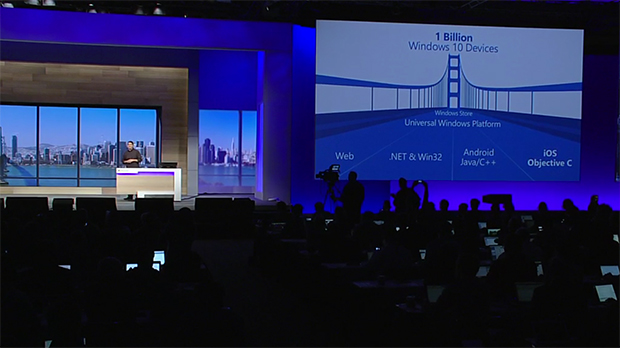Windows 10 Mobile Hits Roadblock With 'Project Astoria' Android App Emulation
Microsoft announced a huge commitment to closing the “app gap” with its mobile operating system platform by making available new tools aimed at helping developers port their existing iOS and Android apps over to Windows 10. The initiatives were labeled Project Islandwood and Project Astoria for iOS and Android respectively.
Today, we’re learning that while Project Islandwood is moving along just fine, Microsoft has hit a roadblock with Project Astoria. It has been revealed that the Android subsystem found in previous Insider Preview builds of Windows 10 Mobile has been ripped out in the shipping version of the operating system. This subsystem allowed smartphones to directly run an Android APK, but as one might expect, this emulation isn’t exactly perfect or conducive to an optimum app experience on a Windows 10 Mobile device.

Other hints that Project Astoria is being relegated to the back burner include the fact that Microsoft has gone radio silent on the discussion forums dedicated to the topic, developers are up in arms about app emulation and the possibility for piracy, and that the team devoted to making Android emulation possible has been a drain on Microsoft’s resources. It’s been reported that Project Islandwood has been successful with a team of just 5 engineers, while a team of 80 people hasn’t been able to “get things right” with Project Astoria.
One other possibility that has been tossed around is that many successful Android app developers also create apps for iOS. With this in mind, developers would be better served by porting iOS apps to Windows 10 Mobile through Project Islandwood, rather than going with the inferior emulation route.

For its part, Microsoft has weighed on on the subject, writing:
We're committed to offering developers many options to bring their apps to the Windows Platform, including bridges available now for Web and iOS, and soon Win32. The Astoria bridge is not ready yet, but other tools offer great options for developers. For example, the iOS bridge enables developers to write a native Windows Universal app which calls UWP APIs directly from Objective-C, and to mix and match UWP and iOS concepts such as XAML and UIKit. Developers can write apps that run on all Windows 10 devices and take advantage of native Windows features easily. We're grateful to the feedback from the development community and look forward to supporting them as they develop apps for Windows 10.
Microsoft doesn’t come right out and say that Project Astoria is DOA, but the language from the statement doesn’t look promising. Even if Microsoft does kill its Android emulation in Windows 10 Mobile, it would probably be for the better. The last thing that Microsoft needs for its smartphone operating system, which is already lagging way behind the two market leaders, is to be hobbled with half-baked emulation which could further alienate customers.

